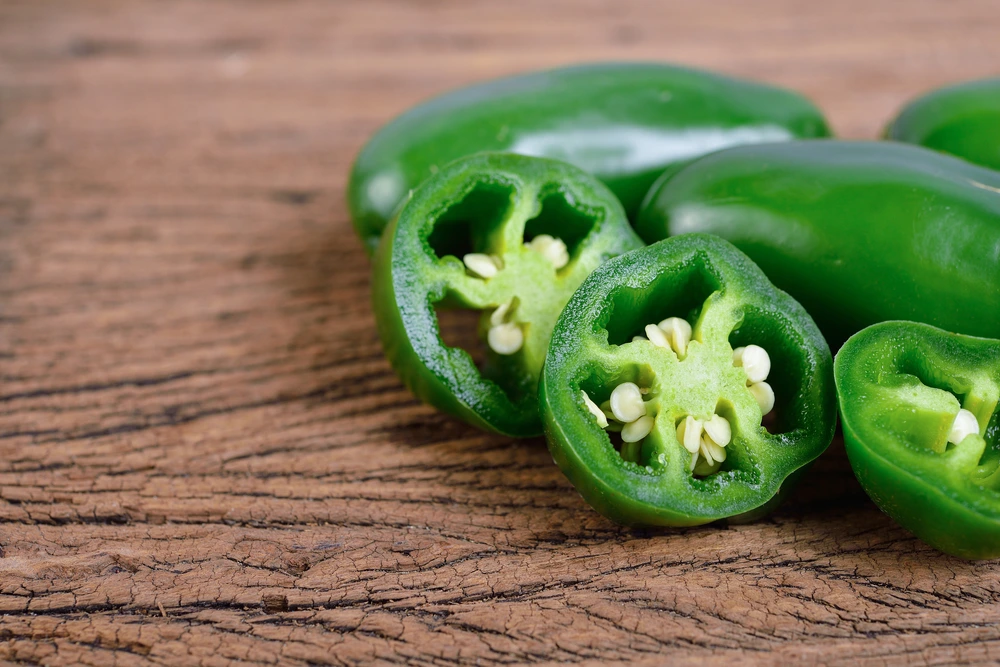Can a Dog Eat Jalapeños? Important Insights for Pet Owners
One food that might catch your attention is jalapeños. These spicy peppers are beloved in many cuisines, but can a dog eat jalapeños? In this article, we will explore the safety of jalapeños for dogs, the potential health risks, and some alternative treats that are both safe and nutritious.

What Are Jalapeños?
Jalapeños are a type of chili pepper that belongs to the Capsicum family. Known for their distinctive heat and flavor, jalapeños are commonly used in a variety of dishes, including salsas, sauces, and as toppings for tacos and sandwiches. While jalapeños are a favorite for many humans, it’s crucial to understand how they can affect dogs.
Nutritional Profile of Jalapeños
Before discussing the safety of jalapeños for dogs, let’s take a look at their nutritional value:
- Vitamins: Jalapeños are rich in vitamins A, C, and K. Vitamin A supports vision and immune function, while vitamin C is essential for skin and coat health.
- Minerals: They contain potassium and magnesium, both of which are important for various bodily functions.
- Capsaicin: This is the compound responsible for the heat in jalapeños. It has anti-inflammatory properties but can cause discomfort for dogs.
Are Jalapeños Safe for Dogs?
While jalapeños are not toxic to dogs, they are generally not safe for canine consumption. Here are several reasons why you should avoid feeding your dog jalapeños:
1. Spiciness and Gastrointestinal Issues
Jalapeños are spicy, and dogs lack the ability to tolerate heat like humans do. Feeding jalapeños to your dog can lead to gastrointestinal upset, resulting in symptoms such as:
- Vomiting
- Diarrhea
- Abdominal pain
- Excessive drooling
If your dog consumes jalapeños, you may notice these signs of distress shortly afterward.
2. Risk of Allergic Reactions
Some dogs may have sensitivities or allergies to certain foods, including peppers. Introducing jalapeños could lead to allergic reactions, which might manifest as itching, swelling, or gastrointestinal upset.
3. Toxicity Concerns
While jalapeños are not considered toxic, the spiciness can lead to severe gastrointestinal discomfort. In some cases, dogs may experience more serious health issues if they consume too many jalapeños or if they are particularly sensitive.
What to Do If Your Dog Eats Jalapeños
If your dog accidentally ingests jalapeños, it’s essential to take note of their condition. Here are steps you should follow:
- Monitor Symptoms: Keep an eye on your dog for any signs of distress, including vomiting, diarrhea, or unusual behavior.
- Hydration: Ensure your dog has access to plenty of fresh water. Drinking may help alleviate some discomfort caused by the spiciness.
- Veterinary Consultation: If your dog shows severe symptoms or has consumed a significant amount of jalapeños, contact your veterinarian for guidance.
Healthy Alternatives to Jalapeños for Dogs
If you’re looking for safe and tasty snacks to share with your dog, consider these healthier alternatives:
1. Bell Peppers
Unlike jalapeños, bell peppers are mild and safe for dogs. They are low in calories and packed with vitamins A and C. You can offer bell peppers raw or cooked.
2. Carrots
Carrots are crunchy, nutritious, and low in calories. They can help promote dental health while providing essential vitamins and minerals.
3. Green Beans
Fresh or steamed green beans are another excellent choice. They are low in calories and high in fiber, which supports digestive health.
4. Sweet Potatoes
Cooked sweet potatoes are delicious and nutritious. They are a good source of vitamins and can be mashed or cut into pieces for your dog.
5. Pumpkin Puree
Plain canned pumpkin (not the spiced variety) is high in fiber and can aid digestion. Many dogs enjoy its taste and benefit from its nutritional properties.
Conclusion: Can a Dog Eat Jalapeños?
In summary, while jalapeños are not toxic to dogs, they are not suitable for canine consumption due to their spiciness, potential for gastrointestinal upset, and risk of allergic reactions. Instead of offering jalapeños, opt for healthier snacks like bell peppers, carrots, or green beans that provide essential nutrients without the associated risks.
If you ever have doubts about what foods are safe for your dog, it’s always best to consult your veterinarian. They can provide personalized recommendations based on your dog’s specific health needs. By prioritizing your dog’s health and well-being, you can ensure they lead a long, happy life, free from the potential dangers of foods like jalapeños.
